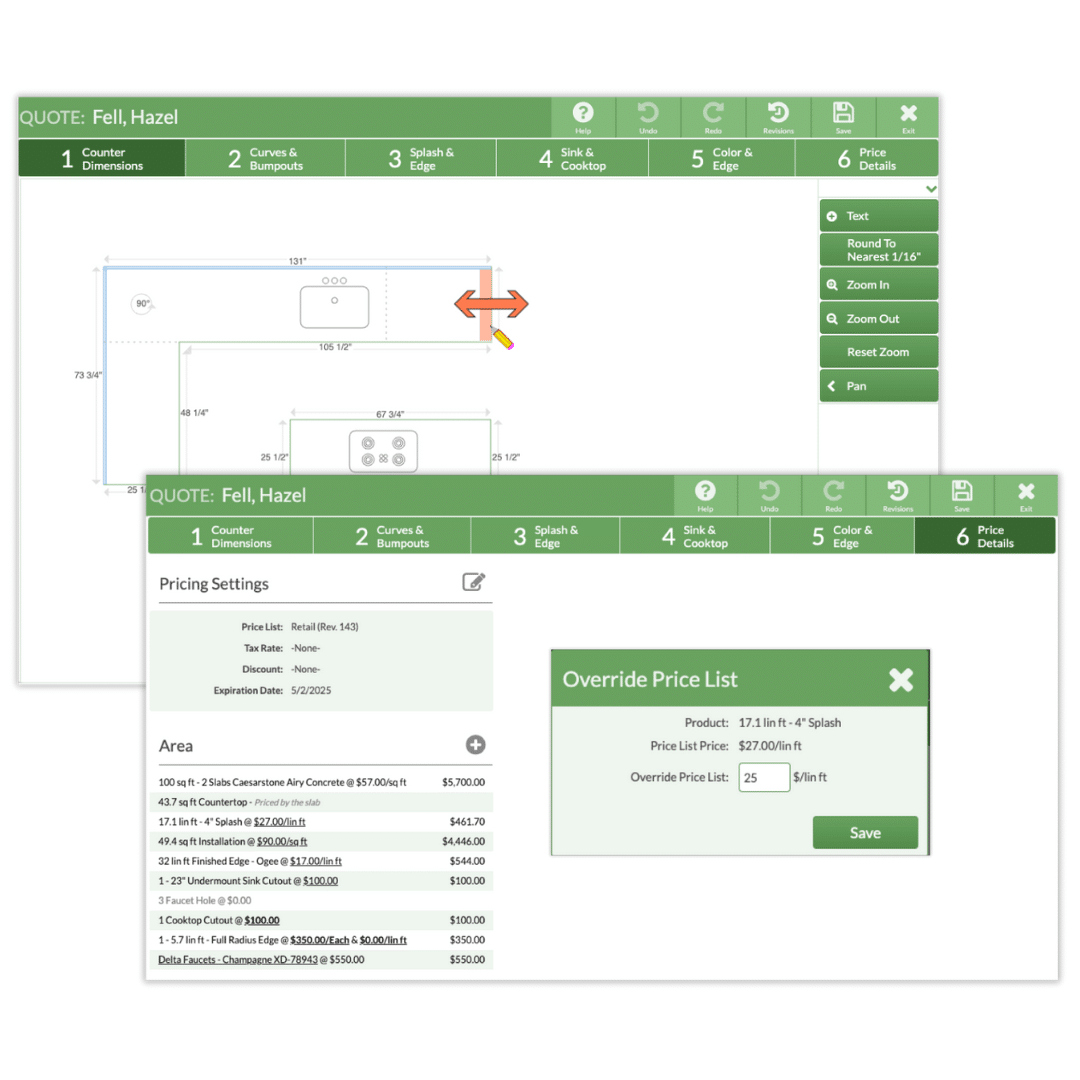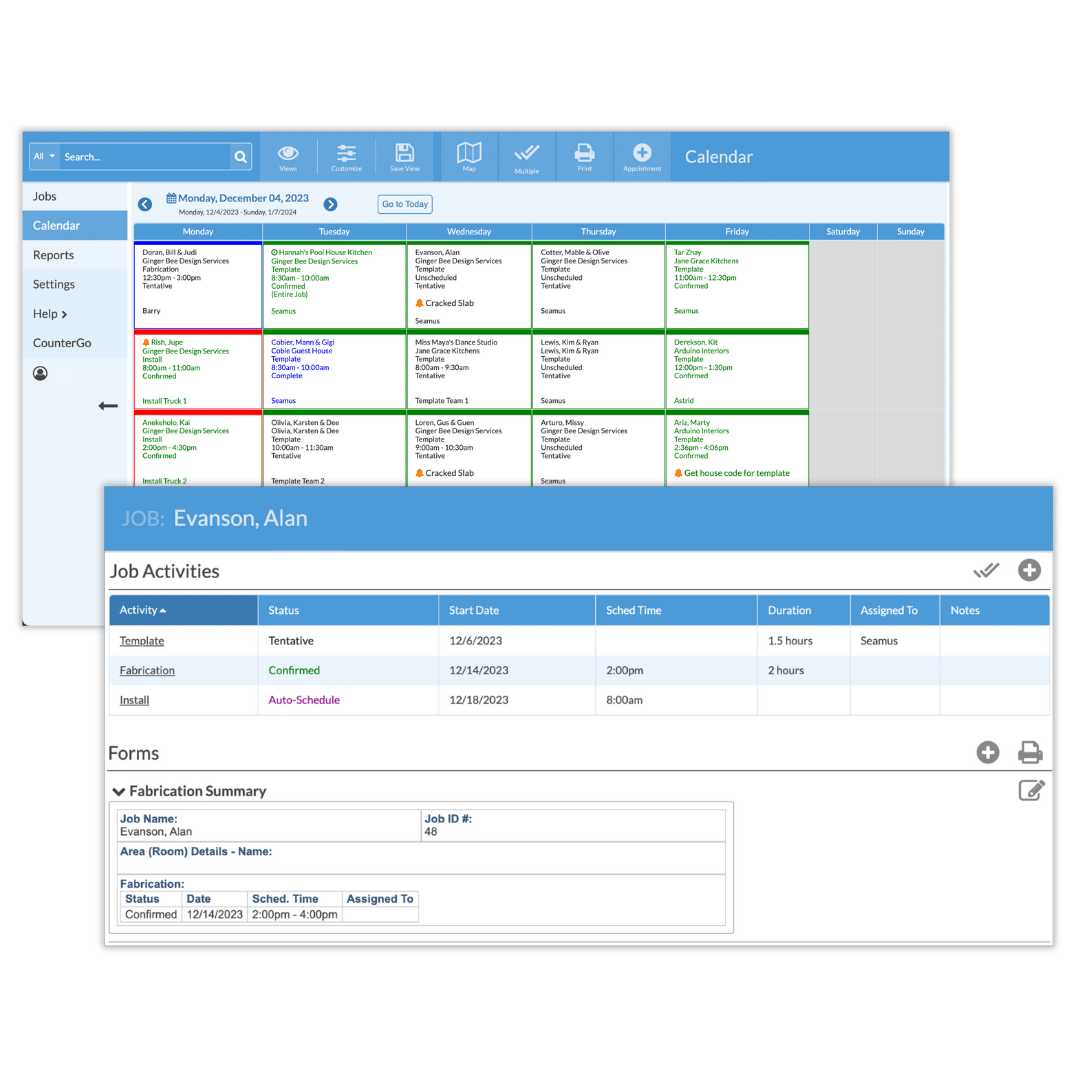
SOFTWARE MADE JUST FOR COUNTERTOP FABRICATORS
No more pen & paper, clunky spreadsheets, or chaotic calendars.
Moraware’s tools help countertop fabricators like you easily create quotes with confidence and keep everyone (at the office and in the field) on the same page about every job in the schedule.
2,000+ Fabricating teams use and trust Moraware.
Together, here’s what they achieve in an average week:
33,000+
quotes created
29,000+
jobs started
The tools you need to create drawings, send quotes, schedule jobs, & manage them from anywhere

“CounterGo has made our quoting fast and easy. It has simplified the way we do things.”
Drawings & Quotes
CounterGo: The easiest way to create your quotes
Create, print, and show professional quotes on the spot.
-
- Easily adjust quotes after you send them if needed
- Direct invoice integration with QuickBooks

“Systemize has created transparencies in the job process, allowing us to identify bottle necks and attend to them more quickly.”
Job Scheduling & Management
Systemize: All-in-one-place job scheduling, viewing, & management
Finally, everyone will know what’s happening, and what needs to be done, on any given day.
With Systemize, you’ll see every job – and its status – in one master list. See what’s happening, when, and where with color-coded calendars for templates, fabrications, and installs.
-
- Create & share custom calendar views that fit your processes
- See where your crews are working (and where they’re working next) so you can assign jobs more efficiently
Everything fabricators need to get jobs done efficiently
“Moraware is the centre of information which every team in our company uses throughout the day to do their job.”
“We’ve gotten compliments from our K&B’s and end-users that our presentation is much more appealing than our competition. Additionally, I can quote immediately, in front of the customer, rather than spending an hour on it after they leave, receiving no feedback from our customer.”
“We have increased our estimating capabilities tremendously. I would say probably by 50%!”
Our products are so easy, even your least “techy” team member will love them. Here’s how to get started…
- Schedule a sales consult
Chat with an expert and learn the ins-and-outs of how CounterGo and Systemize make your work easier and faster. - Onboarding training session
You’ll get a dedicated onboarding specialist who’ll quickly get you and your team up to speed on how to get the most out of Moraware’s tools. - Ongoing, human support
If you have any issue at all, just schedule a call. We’re here to get you back on track asap.
